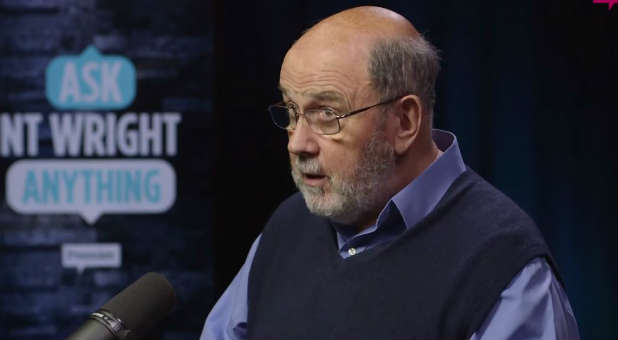NT Wright: Why More Women Should Be Church Leaders, Preachers
N.T. Wright says that the New Testament clearly shows that women can be church leaders and preachers, and added that many American churches that deny women opportunities to lead do so off a “highly selective reading of Scripture” that misses the bigger context.
In an interview with Premier’s Justin Brierley, Wright bases his argument off the existence of female church leaders in Romans 16.
“Romans 16 is explosive,” Wright says. “Paul greets all these church leaders in Rome, many of whom are women who are church leaders in their own right, one of whom is an apostle—he says so, Junia. There’s been a huge attempt to try to make out this as Junius, a man, but the scholarship is quite clear. This is a female name and she is an apostle. For Paul, that means somebody who has seen the Risen Jesus and is thereby commissioned to be an authorized representative.”
Wright adds that Paul selected a woman to be the carrier and likely reader and expositor of the letter which became Romans, which means both Paul and the church recognized she possessed a certain level of authority.
“Here’s the crunch: The first woman mentioned in Romans 16 is the bearer of the letter to Rome,” Wright says. “Now if you’re Paul and you know in your bones you have just written a letter which is the most explosive piece of theological writing you can imagine, who are you going to give it to to take it to be read under Caesar’s nose in Rome? Well, presumably some strong man. No, a deacon woman from the church of Cenchreae. We assume she’s an independent businesswoman—Phoebe—and she’s on the way to Rome and what we know about the way letters worked in the ancient world was if you sent a letter via a friend or somebody, the chances are—you can’t prove this—the chances are they will be the one to read it out. They might well be the one to explain it to people who, I mean, faced with Romans, would have a thousand questions. I’d have a thousand questions: ‘Phoebe tell us…’ So the probability is that the first person to expound Paul’s letter to the Romans was a woman, a deacon from the church in Cenchreae, and I want to say, ‘Get used to it, guys. This is explosive, but it’s the sort of thing that happens when new creation is going forward.'”
Wright says that because Paul and the early church allowed women to preach and lead congregations, it doesn’t make sense for churches today to prevent women from assuming leadership roles.
“To row back from there and to say, ‘Well, Paul didn’t really mean that,’ I then want to say, What are the forces in our culture today—particularly I have to say in America—which are forcing some churches and some people to fasten on one or two verses from elsewhere to say ‘Oh, no, no, we can’t have women doing this, that and the other’?” Wright says. “Because that’s a highly, highly selective reading of the Scripture, and as with all other theological answers, the best place to start is with the resurrection of Jesus and then everything that flows out from there.”
Wright says in the Easter story, women are the first people to hear the news of Jesus’ resurrection and bring that news to others. Wright says this both makes women the first carriers of the gospel message and also makes the gospel accounts more historically believable (as no one would have made up such an account at the time). Watch Wright’s full interview here.















































